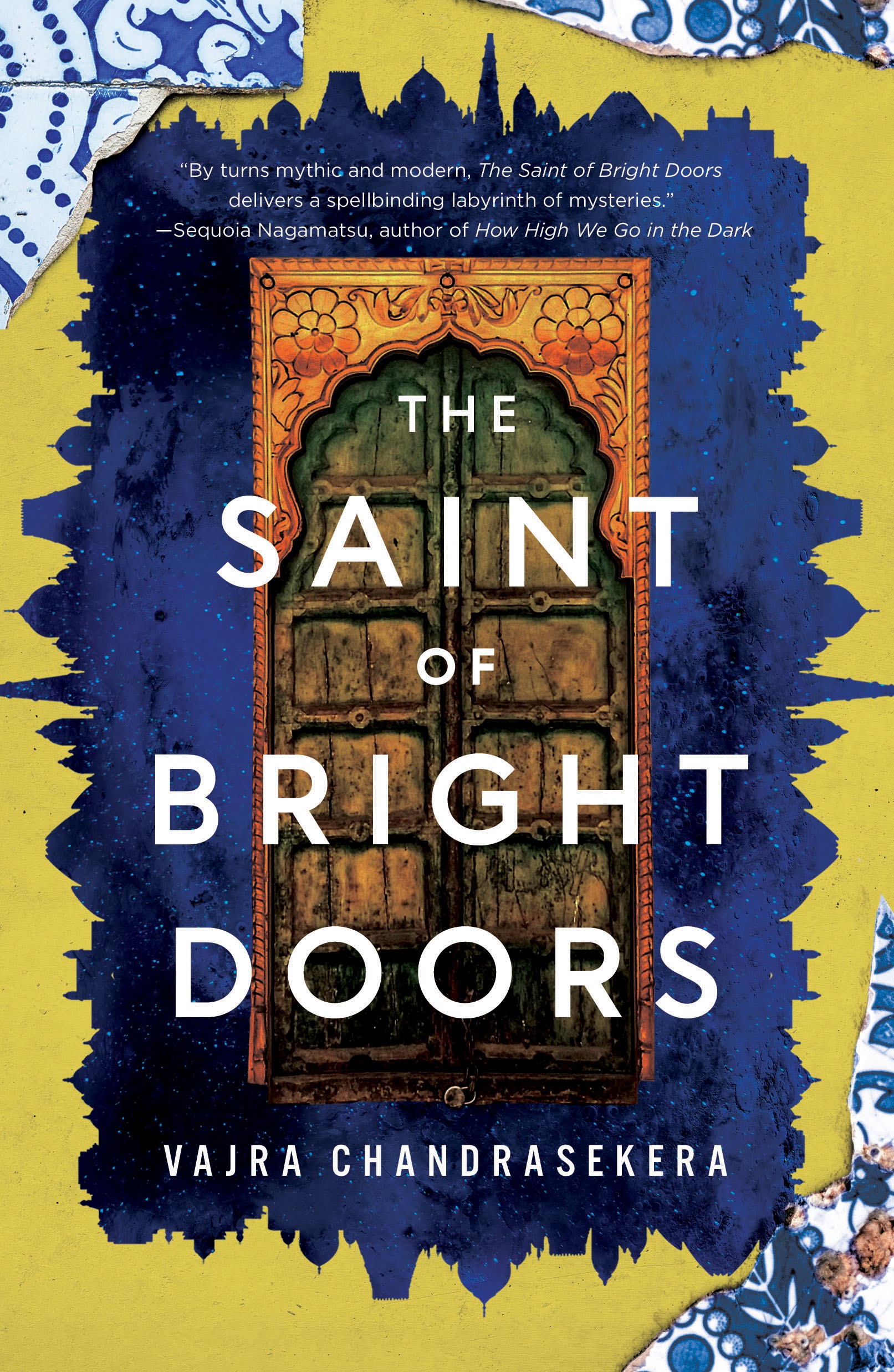- The Good: Ambitious South Asian fantasy with large scale worldbuilding
- The Bad: Complex, confusing
- The Literary: Surreal prose; rich mythology
Fetter is a young man adrift in the city of Luriat, unsure of his purpose. As a child, he had a purpose imposed upon him by his mother. Raised as a killer to murder his religious icon father, Fetter abandons that goal, instead discussing it in a group therapy for un-chosen ones. Having escaped his rural hometown, Fetter settles in the big city of Luriat, which is scattered with Bright Doors that appear overnight and may be portals to other worlds.
There’s a lot to like about this book in theory. Its complex worldbuilding for one: The fantastical and magical elements like devils that only Fetter can see. Fetter can fly. Fetter’s shadow was torn from him as a child. Fetter can pass between worlds through bright doors. The exploration of messiahs and religion and what role they play in society. Colonialism and racism and refugee camps. Fetter sees much that everyone else just looks past.
Unfortunately, the plot is muddled and confusing, and most of the time I’m not sure what’s happening. The story is surreal at parts, especially when Fetter is placed in a camp, which definitely conveys the depression, frustration, and despair among the political prisoners and refugees in an intentionally opaque bureaucracy with multiple administrative centers, but it only adds to the general confusion of the novel.
After completing the book, other reviewers claim that this is a retelling of Lord Gautham Buddha’s son Rahula and wife Yashodara, whom the Lord Buddha abandoned the day his son was born. As a westerner, I find it fascinating that this could be a harsh religious critique from a Sri Lankan perspective.
Recommended for fans of complex political and religious stories, who don’t mind following along without total comprehension.
